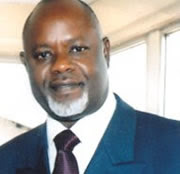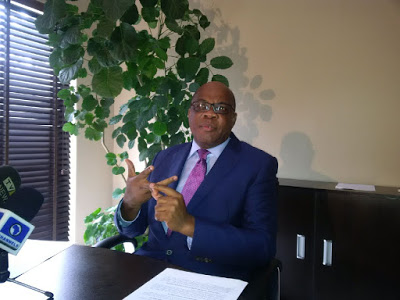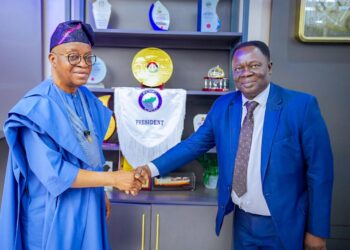President of the Ship Owners Association of Nigeria(SOAN), Mr Greg Ogbeifun, on Tuesday faulted the Nigerian Cabotage Act for not providing ground to encourage ship-building locally.
Ogbeifun made this known at a forum organised by students at the Faculty of Law, University of Lagos.
Ogbeifun also linked non-functional steel industry and non- accessibility of funds as major problems associated with ship-building locally.
The SOAN’s president, who spoke on “Ship Owning in Nigeria and Corporate Governance in Shipping”, said of the 600 ships operating on Nigerian waters, only 10 per cent were owned by Nigerians.
Ogeifun, however, noted that the non-functional state of the steel industry in Nigeria was a major problem in possibility of ship building locally.
According to him, steel industries are either producing far below set capacity or non-functional, which compelled the country to depend heavily on imported steel plates, pipes and sections for its needs.
He also identified high electricity demand in a ship building industry, as another major problem which Nigeria was yet address thoroughly.
On accessing funds, the maritime expert noted that Nigerian banks were not structured for such long-term investments.
Ogbeifun, a marine engineer, noted that the cabotage act only created room for waivers without considering a strategic plan and other logistics for ship building locally.
“It is sad that the Niger Dock has been privatised, and statistics has shown that at the moment Nigeria has only one ship building yard, located in Onne, Rivers State.
“The big shipyards and dockyards are in fact maintenance facilities for docking and general ship repairs,” he said.
He, however, described the manpower development programme by the Nigerian Maritime Administration and Safety Agency (NIMASA) as a welcome development.
Ogeifun said that the programme would be able to solve the manpower needs of the industry since “development of manpower to run a shipping industry is key to the sector.”
Also speaking, Rev. Jonathan Nicol, the President of the Shippers Association of Lagos State, said cargo remained the key element at the centre of the shipping business.
Nicol declared that without cargo, shipping companies could not operate, so, whenever the issue of shipping development was being discussed, the cargo must be given its key play.
Maritime lawyer Jean Chiazor- Anishere, commended the efforts of the students for organising the forum, saying the programme would help them have better understanding of what obtains in the real world.
“What the youth have done today is commendable; it is like setting the pace.
“But with the students showing their flair that they want to know more about the industry, shows that there is a dearth of knowledge in the industry.
“They went out of their way to put this together, inviting the people in the industry for them to be enlightened and further informed about the industry to which the students would want to learn more,” she
said.
said.
Chiazor- Anishere commended the department for giving a word that efforts would be made to bring back the maritime faculty because the students want to know more about the shipping sector.
Anishere said it was exciting to know that the young ones have shown deep interest to know more about the industry.

































































